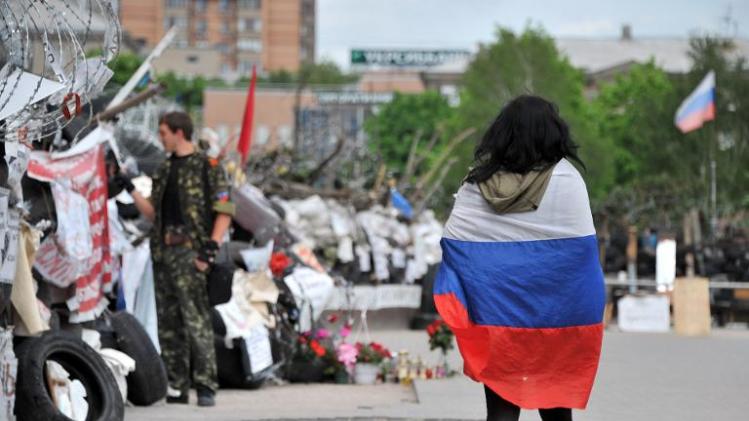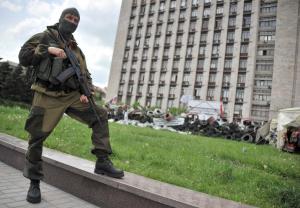Putin's 'New Russia' takes shape in eastern Ukraine
 Now that vision is taking shape.
Now that vision is taking shape.
Russia's
widely condemned annexation of Crimea in March and Putin's increasing
rhetoric about protecting Russian-speakers abroad had raised fears the
Kremlin was gearing up to seize new territory.
Those worries were
allayed when Russian troops failed to pour over the border after
separatists in the eastern regions of Donetsk and Lugansk said weekend
referendums had overwhelmingly backed breaking away from Ukraine.
Putin's
Foreign Minister Sergei Lavrov insisted Wednesday that Moscow had "no
intention" of sending in troops to eastern Ukraine.
While denying
Russian troops were in the restive regions, Putin recalled that after
its conquest in tsarist times the territory from Donetsk to Odessa was
known as Novorossiya -- New Russia.
Won by Russia in famous
battles led by Catherine the Great and her favourite Grigory Potemkin,
eastern and southern Ukraine only ended up as part of the country after
the territory was transferred by the Bolsheviks in the 1920s, Putin
said.
"Why they did this, God only knows," he lamented.
After
the weekend votes in the east, the rebels moved quickly to stake their
claim to joining Russia, with Donetsk separatist chief Denis Pushilin
declaring they were seeking to "restore historic justice" -- echoing a
term Putin used to describe Russia's annexation of Crimea in March.
The separatists have promised to hold referendums on joining Russia."It is for all the population of the 'People's Republic of Lugansk' to make their voices heard on questions of such importance," news agency RIA Novosti quoted the head of local rebel forces, Vasily Nikitin, as saying.
But votes on joining Russia are unlikely to have any more international weight than the independence referendums, which were dismissed as a "farce" by authorities in Kiev and declared illegal by the West.
- 'New means of pressure' -
The "New Russia" idea has taken hold in the regions however, with the self-styled governor of Donetsk, Pavlo Gubarev, using the term this week.
He told the Russia-24
news channel the newly declared "People's Republic of Donetsk" was "only
the first step towards the great New Russia in the 'ex-east of
Ukraine'."
Even if they claim to control large parts of Donetsk and Lugansk, the separatists are a long way from realising their dream.
Ukrainian forces remain in
control of the region's military bases and border posts and, despite
intense fighting, the rebels could not withstand a full assault without
Moscow's help.
Analysts said
that, for now, Putin may be content with putting his "New Russia" dream
on hold and using instability in eastern Ukraine against Kiev.
As
long as Kiev remains unable to claim full control of Ukrainian
territory, Moscow can undermine the legitimacy of a pro-Western
government it despises for overthrowing Kremlin-backed authorities
earlier this year.
"The
Kremlin doesn't need the Donetsk and Lugansk regions right now -- it
already has to deal with Crimea," said Konstantin Kalachev, head of the
Moscow-based Political Expert Group.
"Now it has a new means of pressure on everyone."





No comments:
Post a Comment